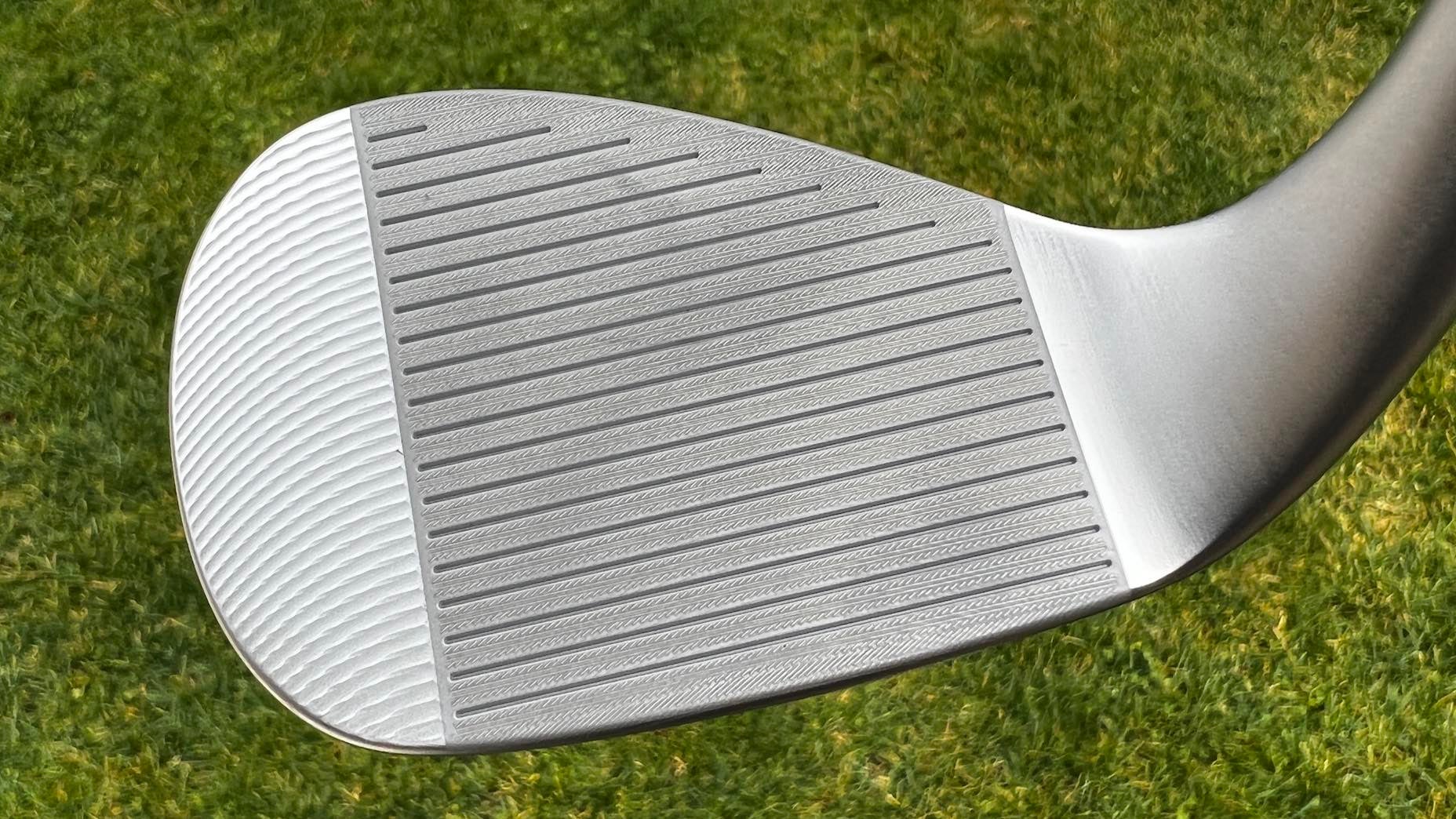Welcome to Gear Questions You’re Afraid to Ask, a GOLF.com series produced in partnership with Cleveland/Srixon Golf. This week we unpack the best way to generate more greenside spin.
I need more greenside spin. Should I go with a softer ball or buy a new wedge with sharper grooves?. – Joe J., Nebraska
This is an easy one, Joe. The answer is that both are good ideas. A softer cover (not necessarily a softer ball) made of urethane will help the ball stick more to the clubface for added spin. And sharper/newer grooves will generally do a better job at adding traction and whisking away debris at impact — again, for more spin.
If we had to pick one to advise you on, we’d probably start with making sure your wedges have clean grooves. It baffles us to see so many golfers out there hitting shots around the green with sand, dirt and grass caked in the grooves of their short clubs. Once you get in the habit of playing with clean grooves, then go ahead and try a golf ball with a softer cover and see if it helps you stick your landing.
Grooveit Brush
View Product
However, there’s more to spin than just the cover of the ball and the grooves on your wedges. The players this week at Augusta will be maximizing the amount of spin they can produce, and they do it not only with equipment tweaks but also with adjustments to their techniques.
Below are a few quick ways to add some RPMs to your short shots.
Bump up your loft.
It’s not true for everyone, but for many golfers, the more loft you use, the more spin you’ll impart on the golf ball. Again, this means nothing if you play with rock hard golf balls and your grooves are full of muck.
More loft means more clubhead speed.
Adding loft, whether by opening your clubface or using a higher-lofted wedge, means you can strike the ball a little harder than you would with a square clubface at impact.
Dial in your spin loft.
Adding spin (or lack thereof) has much to do with a metric that teaching pros and swing gurus like to call “spin loft.” To explain, let’s start with two things you’ve probably already heard of. The first is dynamic loft, which is the actual loft of the clubhead at impact with the ball. The second is angle of attack, which is the vertical angle the clubhead is moving when it strikes the ball. Spin loft is essentially the difference between the two. If that makes your head spin more than your ball, just know that to generate more spin, you don’t necessarily have to hit the ball from a steeper angle or hit the ball with your hands way ahead of the ball at impact. If anything, a shallower angle of attack and a higher dynamic loft at impact is your best bet for a higher degree of spin loft.
Consider a wedge with a full-face of grooves.
We love full-face grooves because they’re great for playing open-faced shots (which tend to spin more.) Take Cleveland’s RTX Full-Face Wedge, for example. It comes with a high-toe clubface that’s all Zip Grooves with UltiZip grooves between them for added flop-shot control. Additionally, the ZipCore tech also found in the RTX Full-Face wedge displaces weight in the hosel for a more centered MOI which also helps to produce more spin.
Cleveland RTX Full-Face Black Satin Wedge
Remember, generating more greenside spin with your wedges takes practice and experimentation with what works for you. A soft cover on your golf ball and sharp grooves can help, but technique and club selection will likely have a bigger impact on your short shot spin rates.
Want to overhaul your bag for 2023? Find a fitting location near you at GOLF’s affiliate company True Spec Golf. For more on the latest gear news and information, check out our latest Fully Equipped podcast below!
